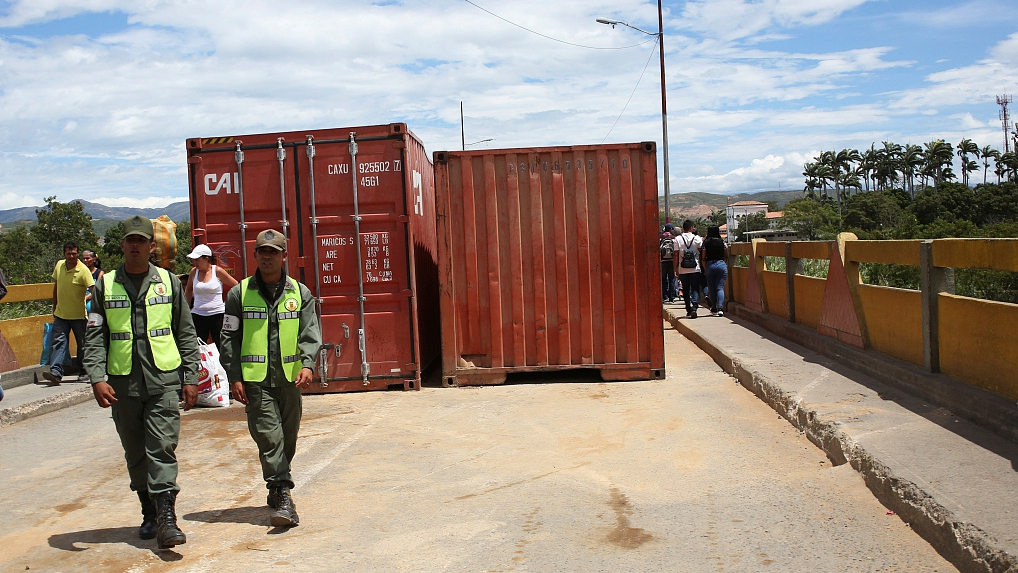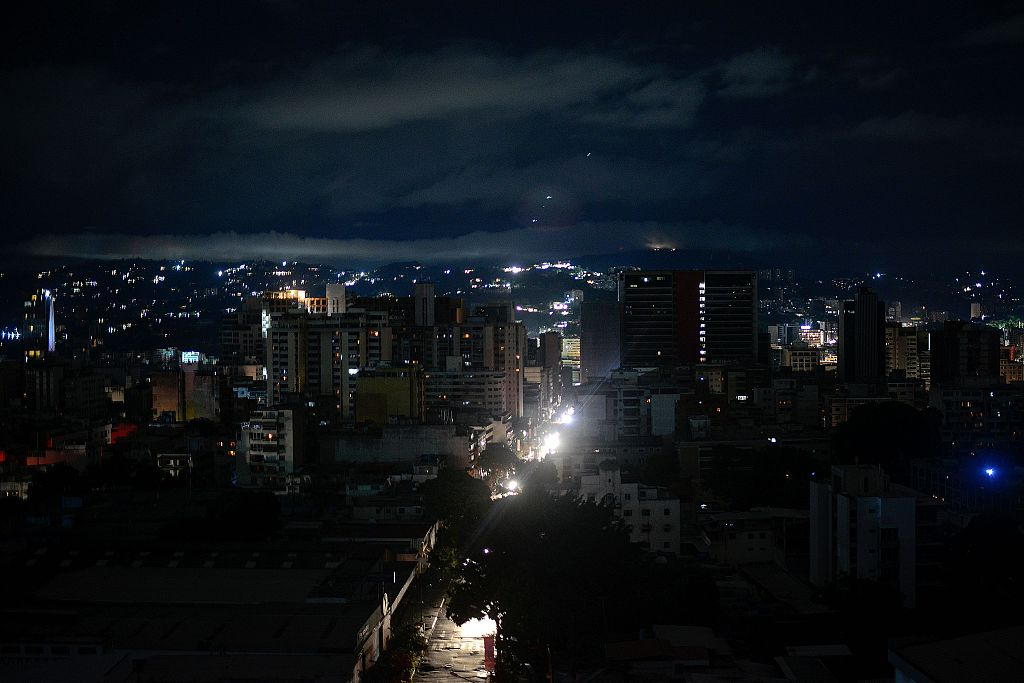
Venezuela's National Assembly approved a law returning the OPEC nation to a regional defense treaty on Tuesday.
The South American country has assumed the rotating presidency of the Organization of Petroleum Exporting Countries (OPEC) in 2018, in which it joined the ministerial meeting that oversees crude prices by regulating old-producing countries' output cap.
The opposition hardliners had been pressuring opposition leader Juan Guaido to join the Inter-American Treaty of Reciprocal Assistance (TIAR) as a precursor to requesting a foreign military intervention to oust Nicolas Maduro, the current Venezuela's president, who declared his victory in 2018 re-election.

Members of the Venezuelan security forces walk past containers blocking the Colombian-Venezuelan border over the partially opened Simon Bolivar international bridge in San Antonio del Tachira, Venezuela, June 9, 2019. /VCG Photo
"The TIAR is not magic, it is not a button that we press and then tomorrow everything is resolved," Guaido said in a rally in Caracas, adding that TIAR will be enable them to "take to the streets."
The TIAR that the opposition-controlled National Assembly seeks to join in is a treaty signed in Rio de Janeiro in 1947, which states an attack on one of the members, which include most large Western Hemisphere countries including the U.S., Brazil and Colombia should be considered an attack on all.
Venezuela and other leftist Latin American countries left the alliance between 2012 and 2013.

Venezuela capital Caracas and other parts of the country are being hit by a massive power cut. The lights went out in most of Caracas while people in other parts of the country took to social media to report the power had gone out there too, Venezuela, July 22, 2019. /VCG Photo
Venezuela plunged into a deep power struggle in January when Guaido invoked the constitution to declare a rival presidency, arguing Maduro's 2018 re-election was illegitimate. He has been recognized as the rightful leader by some Western countries, including the United States.
Maduro, who calls Guaido a U.S. puppet seeking to oust him in a coup, controls the government functions six months into Guaido's campaign.
The country's economy and public services have continued to deteriorate due to political instability, and much of the country went dark on Monday in the biggest blackout since March.
Latin American and European countries are pushing a diplomatic solution to Venezuela's political and economic crisis, and many have criticized the possible use of force.
Norway's government is currently mediating negotiations between the government and the opposition in Barbados.
(With input from agencies)

Copyright © 2018 CGTN. Beijing ICP prepared NO.16065310-3
Copyright © 2018 CGTN. Beijing ICP prepared NO.16065310-3